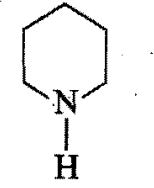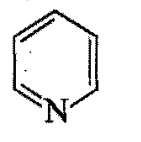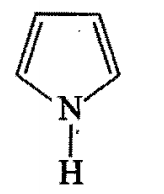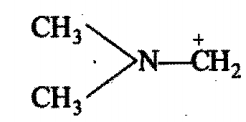Physics-
General
Easy
Question
X-rays were discovered by
- Becquerel
- Roentgen
- Marie Curie
- Von Laue
The correct answer is: Roentgen
Related Questions to study
Physics-
In radio theraphy, X-rays are used to
In radio theraphy, X-rays are used to
Physics-General
Physics-
The light rays having photons of energy 1.8 eV are falling on a metal surface having a work function 1.2 eV. What is the stopping potential to be applied to stop the emitting electrons
The light rays having photons of energy 1.8 eV are falling on a metal surface having a work function 1.2 eV. What is the stopping potential to be applied to stop the emitting electrons
Physics-General
Physics-
The velocity of photon is proportional to (where n is frequency)
The velocity of photon is proportional to (where n is frequency)
Physics-General
Physics-
Consider the two following statements A and B and identify the correct choice given in the answers;
A) In photovlotaic cells the photoelectric current produced is not proportional to the, intensity of incident light.
B) In gas filled photoemissive cells, the velocity of photoelectrons depends on the wavelength of the incident radiation.
Consider the two following statements A and B and identify the correct choice given in the answers;
A) In photovlotaic cells the photoelectric current produced is not proportional to the, intensity of incident light.
B) In gas filled photoemissive cells, the velocity of photoelectrons depends on the wavelength of the incident radiation.
Physics-General
Maths-
If the function  is continuous at x=
is continuous at x=  then k equals
then k equals
If the function  is continuous at x=
is continuous at x=  then k equals
then k equals
Maths-General
Maths-
The function  has
has
The function  has
has
Maths-General
Chemistry-
In the, following compounds, the order of basicity is :
I) 
II) 
III) 
IV)
In the, following compounds, the order of basicity is :
I) 
II) 
III) 
IV)
Chemistry-General
Chemistry-
Arrange the following carbocations in decreasing order of stability:
I) 
II) 
III) 
IV) 
Arrange the following carbocations in decreasing order of stability:
I) 
II) 
III) 
IV) 
Chemistry-General
Maths-
If  and
and  where
where  exists, then
exists, then  is continuous on
is continuous on
If  and
and  where
where  exists, then
exists, then  is continuous on
is continuous on
Maths-General
Maths-
The value of f (0) so that the function  is continuous at
is continuous at  is
is
For such questions, we should know formula for different limits.
The value of f (0) so that the function  is continuous at
is continuous at  is
is
Maths-General
For such questions, we should know formula for different limits.
Physics-
Light of two different frequencies whose photons have energies  and
and  respectively, successively illuminates a metal of work function
respectively, successively illuminates a metal of work function  . The ratio of maximum kinetic energy of the emitted electron will be
. The ratio of maximum kinetic energy of the emitted electron will be
Light of two different frequencies whose photons have energies  and
and  respectively, successively illuminates a metal of work function
respectively, successively illuminates a metal of work function  . The ratio of maximum kinetic energy of the emitted electron will be
. The ratio of maximum kinetic energy of the emitted electron will be
Physics-General
Physics-
4 eV is the energy of the incident photon and the work function in  What is the stopping potential
What is the stopping potential
4 eV is the energy of the incident photon and the work function in  What is the stopping potential
What is the stopping potential
Physics-General
Physics-
The work functions for sodium and copper are  and
and  . Which of them is suitable for a photocell with 4000
. Which of them is suitable for a photocell with 4000  light
light
The work functions for sodium and copper are  and
and  . Which of them is suitable for a photocell with 4000
. Which of them is suitable for a photocell with 4000  light
light
Physics-General
Physics-
When yellow light is incident on a surface, no electrons are emitted while green light can emit. If red light is incident on the surface, then
When yellow light is incident on a surface, no electrons are emitted while green light can emit. If red light is incident on the surface, then
Physics-General
Physics-
As the intensity of incident light increases
As the intensity of incident light increases
Physics-General



